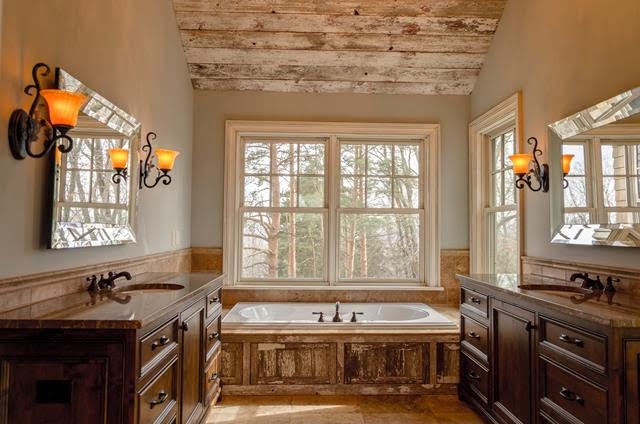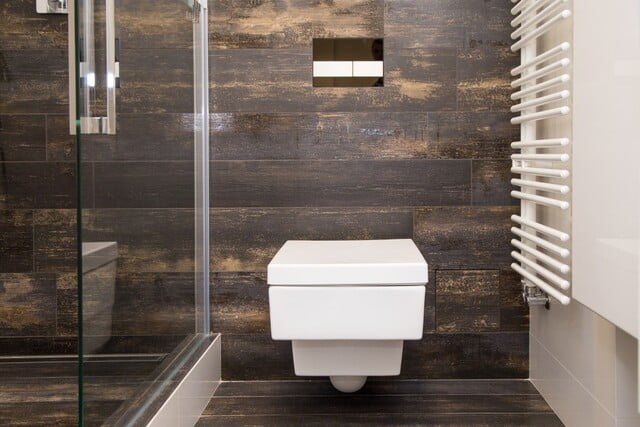Bathroom renovations play a crucial role in enhancing the overall value of a home, with particular attention given to the choice between having a separate shower and tub or a combined shower tub. The decision regarding the type of bathroom fixture to install is not only essential for functionality and aesthetic appeal but also has a significant impact on the resale value of a property.
Homeowners are often faced with the dilemma of choosing between these options, considering various factors such as market trends, cost considerations, available space, and personal preferences.
The installation of separate or combined shower tubs can greatly influence the perceived value of a home. Many potential buyers prioritize bathrooms when considering a new property, making the selection of fixtures an important aspect of real estate. Understanding the advantages and disadvantages of each option is crucial in making an informed decision that will ultimately benefit homeowners in terms of both comfort and investment.
In this article, we will delve into the benefits and drawbacks of having separate showers and tubs versus combined shower tubs in bathrooms. We will explore market trends, cost considerations, available space and layout, as well as how these choices can impact a home’s resale value and market attractiveness.
Additionally, we will highlight the importance of considering personal preferences and lifestyle when making this decision. By examining these factors thoroughly, homeowners can make informed choices that align with their needs while optimizing their home’s value.
Defining Separate Shower and Tub
When it comes to bathroom renovations and their impact on home value, the decision of whether to install a separate shower and tub or a combined shower tub is an important one. A separate shower and tub refers to having distinct, standalone fixtures for showering and bathing, while a combined shower tub involves a single unit that serves both functions.
Both options have their own set of advantages and disadvantages, which can significantly influence the overall appeal and value of a home.
Advantages of Separate Shower and Tub
One of the key advantages of having a separate shower and tub is the luxury feel it can provide to a bathroom. Homebuyers often view separate fixtures as more spacious, elegant, and versatile. Additionally, having distinct areas for showering and bathing allows for more flexibility in terms of design and layout.
From a functionality standpoint, some individuals also prefer having the option to use either the shower or tub at any given time. For those with larger bathrooms, installing separate fixtures may be an attractive feature that sets the home apart from others on the market.
Disadvantages of Separate Shower and Tub
On the other hand, installing both a separate shower and tub can be cost-prohibitive for some homeowners. The need for additional plumbing, hardware, and space may result in higher renovation costs compared to choosing a combined shower tub.
Furthermore, in homes with limited square footage, finding space for two fixtures could be challenging or impractical. It’s also important to consider maintenance requirements – cleaning two separate areas may require more time and effort than maintaining a single shower tub unit.
Overall though, there are many factors that go into deciding whether it’s best to install separate or combined facilities when considering which improves home value: separate or combined shower-tub?
Defining Combined Shower Tub
When it comes to bathroom renovations, one of the key decisions homeowners have to make is whether to install a separate shower and tub or a combined shower tub. A combined shower tub refers to a unit that integrates the shower and bathtub into one fixture, while a separate shower and tub means having individual units for bathing and showering.
Both options have their own set of advantages and drawbacks, but the choice ultimately depends on various factors such as personal preferences, space availability, market trends, and cost considerations.
One of the main benefits of a combined shower tub is that it can save space in smaller bathrooms. This can be particularly advantageous for homeowners with limited square footage who want to maximize the use of their bathroom. Additionally, a combined shower tub may be more cost-effective in terms of installation, as it requires fewer materials and labor compared to installing separate units.
However, there are also drawbacks to consider when opting for a combined shower tub. For some people, having a single fixture for both bathing and showering may not be ideal in terms of functionality and convenience. In addition, the design options for combined shower tubs may be limited compared to separate units, which could impact the overall aesthetic appeal of the bathroom.
When making the decision between a separate or combined shower tub, it is important for homeowners to consider their own lifestyle needs and preferences. While market trends and real estate impact are important factors to take into account, ultimately it is essential to choose a solution that best suits the individual or family that will be using the bathroom on a daily basis.
| Pros | Cons |
|---|---|
| Save space in smaller bathrooms | May not be ideal in terms of functionality |
| Cost-effective in terms of installation | Limited design options compared to separate units |
Market Trends
When it comes to home renovations, the bathroom is a key area that can significantly impact the overall value of a property. One decision that homeowners often face during bathroom renovations is whether to install a separate shower and tub or a combined shower tub. Both options have their own advantages and drawbacks, but current market trends provide valuable insight into the preferences of potential buyers.
Market trends indicate that there is a growing preference for separate shower and tub combinations in home renovations. This trend reflects the desire for modern and luxurious bathroom spaces that offer convenience and functionality. Separate shower and tub setups are seen as more spacious and luxurious, providing homeowners with a spa-like experience within their own homes. Additionally, many homebuyers view separate shower and tub configurations as appealing features that add value to a property.
On the other hand, there is still a demand for combined shower tubs in the real estate market. While some homeowners prefer the space-saving nature of a combined shower tub, others appreciate the convenience of having both bathing options in one unit. This option can be particularly appealing for families with young children who may require a bathtub for bathing.
In summary, while separate shower and tub combinations are gaining popularity in home renovations, market trends show that both options have their own appeal to different demographics of potential homebuyers. Ultimately, the choice between separate or combined shower tub should take into account not only current market trends, but also personal lifestyle preferences and the specific needs of the household.
Cost Considerations
When it comes to bathroom renovations, one of the key considerations for homeowners is whether to install a separate shower and tub or a combined shower tub. This decision often hinges on various factors, including cost considerations. The costs of installing a separate shower and tub versus a combined shower tub can significantly impact the overall budget for a bathroom renovation project, which in turn can influence the home’s value.
Installing a separate shower and tub typically involves higher costs compared to a combined shower tub. This is because separate units require additional materials, labor, and plumbing work to create distinct spaces for the shower and tub.
Homeowners may need to consider factors such as tiling, fixtures, and cabinetry for both the shower and tub areas when opting for separate installations. On the other hand, a combined shower tub may be more cost-effective in terms of material and labor expenses since it involves creating one unified space for bathing.
However, it’s important for homeowners to carefully weigh these costs against the long-term benefits and potential impact on home value. While a combined shower tub may be more economical initially, opting for a separate shower and tub could ultimately increase the functionality and aesthetic appeal of the bathroom, which improves home value over time.
Therefore, while cost is an important consideration, it should be balanced with the overall goals for the bathroom renovation project in terms of resale value and market attractiveness.
Space and Layout
When considering a bathroom renovation, one of the key factors to take into account is the available space and layout of the bathroom. This plays a crucial role in determining whether a separate shower and tub or a combined shower tub would be more suitable for the space. Both options have their own set of advantages and drawbacks, and it’s essential to consider how the layout of the bathroom can impact the decision.
Space Constraints
In smaller bathrooms, space constraints may make it impractical to have both a separate shower and tub. In such cases, opting for a combined shower tub can be a more practical choice as it saves space and allows for both bathing and showering functionalities within a limited area. However, if there is sufficient space available, homeowners may prefer the luxury of having both separate fixtures for bathing and showering purposes.
Layout Considerations
The existing layout of the bathroom can also influence the decision between separate or combined shower tub. For instance, if there are existing plumbing configurations that make it easier to install a separate shower and tub, this option may be more feasible. Conversely, if relocating plumbing for separate fixtures poses challenges due to the existing layout, homeowners may opt for a combined shower tub for ease of installation.
Impact on Home Value
It’s important to note that the space and layout decisions regarding separate or combined shower tubs can directly impact home value. A well-designed bathroom with optimal use of space that includes either separate or combined fixtures can improve overall home value.
However, an awkward or impractical layout due to poor fixture choices could potentially have a negative impact on resale value. Therefore, careful consideration of space and layout is crucial in making an informed decision about whether to choose separate or combined shower tub configurations when renovating a bathroom.
Real Estate Impact
When it comes to home renovations, the bathroom is one of the most important areas to consider. Not only is it a space for personal hygiene and relaxation, but it also plays a significant role in determining the overall value of a home.
One of the key decisions that homeowners face when renovating their bathrooms is whether to install a separate shower and tub or opt for a combined shower tub. This decision can have a substantial impact on the resale value and market attractiveness of the property.
According to real estate experts, having a separate shower and tub in the primary or master bathroom is highly desirable among homebuyers. This setup provides both convenience and luxury, allowing homeowners to enjoy the best of both worlds.
It gives them the option to take quick showers when they’re in a hurry or indulge in long, relaxing baths when they have more time. As such, homes with separate shower and tub setups tend to command higher prices and attract more potential buyers.
On the other hand, there are instances where space constraints or budget considerations lead homeowners to opt for a combined shower tub. While this setup may be practical for some, it can potentially detract from the overall appeal of the bathroom.
Real estate data suggests that homes with combined shower tubs may take longer to sell compared to those with separate fixtures. Additionally, these homes may not see as much appreciation in value over time compared to properties with separate shower and tub setups.
In summary, when it comes to impacting a home’s resale value and market attractiveness, separate shower and tub configurations tend to be more favorable than combined shower tubs. However, every property is unique, so factors such as location, target market, and overall property condition should also be taken into account when making this decision.
| Shower Setup | Resale Value Impact | Market Attractiveness |
|---|---|---|
| Separate Shower and Tub | Higher resale value | Attracts more potential buyers |
| Combined Shower Tub | Potential for slower sale | Limited appeal to certain buyers |
Personal Preferences
In conclusion, when considering bathroom renovations to improve home value, the choice between a separate shower and tub or a combined shower tub should ultimately come down to personal preferences and lifestyle. Both options have their own advantages and drawbacks, but what matters most is how they align with the needs and desires of the homeowner.
Market trends may provide insights into what is popular or desirable in home renovations, but at the end of the day, it’s important for individuals to consider what works best for them. Whether it’s the convenience of a combined shower tub for families with young children or the luxury and spa-like feel of a separate shower and tub for those who prioritize relaxation, personal preferences play a significant role in this decision-making process.
Furthermore, when assessing the impact on resale value and market attractiveness, it’s essential to remember that different buyers may have varying preferences. What appeals to one potential buyer may not resonate with another. Therefore, homeowners should prioritize their own comfort and satisfaction when making these decisions, knowing that they are creating a space that reflects their lifestyle and meets their needs while also potentially improving the overall value of their home.
Frequently Asked Questions
Do Buyers Prefer Baths or Showers?
Buyers generally prefer a separate shower and bath in a home. Showers are seen as more convenient for everyday use, while baths are considered a luxury for relaxation and soaking.
Is It Better to Have a Separate Shower and Bath?
Having a separate shower and bath is typically seen as better and more desirable for homeowners. It allows for flexibility in bathroom use, catering to both quick showers and leisurely baths.
Is a Shower Tub Combo a Good Idea?
A shower tub combo can be a good idea for certain situations. It’s a space-saving option that can work well in smaller bathrooms or for homes with limited square footage. However, some buyers may still prefer the luxury of a separate shower and bath.

I’m thrilled to have you here as a part of the Remodeling Top community. This is where my journey as an architect and remodeling enthusiast intersects with your passion for transforming houses into dream homes.





